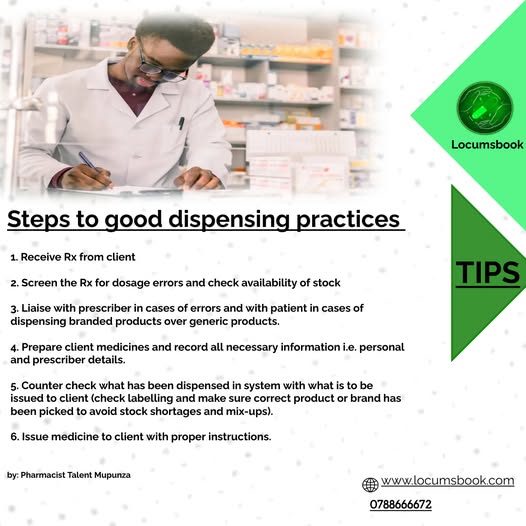Mental Health and Its Impact on Pharmacists’ Work: Coping Strategies
MENTAL HEALTH SERIES
Featured Blogger
August 25, 2025
24/12/24
Pharmacists play a critical role in healthcare. Our role involves ensuring
patients receive the right medications, offering counsel on proper drug
use, and contributing to overall health management. However, like many
other professionals in many high-pressure fields, we are not immune to
the effects of mental health challenges. The nature of our work, which
often involves long hours, high volumes of patients, complex drug
regimens, and frequent exposure to stressful situations, can increase
stress, anxiety, and burnout. When mental health issues are not
addressed properly, they can significantly affect the quality of care that
we as pharmacists provide as well as our job satisfaction, and their
overall well-being
Mental health challenges, including stress, anxiety, depression, and
burnout, are prevalent among pharmacists. Studies(1) have shown that
nearly half of pharmacists report experiencing high levels of work-related
stress. The work environment, characterized by demanding
workloads, time pressures, and customer expectations, can lead to
feelings of emotional exhaustion and reduced job satisfaction. The
emotional toll can affect pharmacists’ ability to perform our duties
effectively often leading to mistakes in medication dispensing, poor
patient communication, and a decreased ability to make sound clinical
decisions.
Moreover, mental health issues may hinder pharmacists' ability to
maintain a healthy work-life balance. Many of us work in environments
with very little room for personal breaks or downtime. This cycle can
often exacerbate stress and lead to physical symptoms like fatigue,
headaches, or sleep disturbances.
As the pressure builds, it can result in a diminished sense of job fulfillment.
Individuals will often findthemselves feeling detached from their work or
colleagues, which inturn can reduce the quality of care they provide to patients.
While the pressures of the profession are significant, there are various
ways we can manage and cope with mental health challenges.
1. Promoting a Supportive Work Environment: A healthy work
environment is critical in helping pharmacists manage mental
health. We should be encouraged to have open discussions about
mental health issues with our superiors as well as our colleagues.
Encouraging workplace structures that promote mental well-being,
such as regular or occasional mental health check-ins and
stress management workshops, can reduce stigma and provide
the necessary support.
2. Setting Boundaries and Time Management: We should devise
ways in which to manage our time effectively, ensuring we take
regular breaks and set boundaries between work and personal life.
Having structured work schedules that allow for sufficient rest
can reduce feelings of burnout. Prioritizing tasks and learning to
delegate and ask for help when possible, can also help us
manage our workloads.
3. Seeking Professional Support: We should not hesitate to seek
help from mental health professionals when experiencing
significant distress. Therapy or counseling can provide coping
mechanisms for managing stress, anxiety, or depression.
4. Engaging in Physical Activity and Self-Care: Regular physical
activity is known to alleviate stress and improve overall mental
well-being. We should aim to incorporate exercise into their daily
routines, even if it’s just a short walk. Additionally, engaging in
hobbies, socializing with friends and family, and practicing
relaxation techniques such as meditation or mindfulness can help
pharmacists recharge.
5. Fostering a Sense of Purpose: Finally, focusing on the rewarding
aspects of the profession can help us reconnect with their sense
of purpose. Reminding oneself of the positive impact made on
patients’ lives and taking pride in professional achievements can
serve as motivation to navigate stressful situations with greater
resilience.
In conclusion, mental health challenges are an undeniable reality in the
pharmacy profession. However, by recognizing these challenges and
adopting strategies to manage them, we can mitigate the negative
effects on work and well-being. Creating supportive work environments,
setting personal boundaries, seeking professional help, engaging in
physical activity, and nurturing a sense of purpose are all critical steps
in ensuring we the pharmacists can thrive in both their professional and
personal lives.(4)
References
1. Massoubre, B. et al. (2023) ‘Survey on the mental health of dispensing
pharmacists in the Auvergne-rhône-alpes region (France)’, International
Journal of Environmental Research and Public Health, 20(21), p. 6988.
doi:10.3390/ijerph20216988.
2. Ishaky, L. et al. (2023) ‘Pharmacists’ mental health during the first two years of
the pandemic: A socio-ecological scoping review’, Pharmacy, 11(2), p. 64.
doi:10.3390/pharmacy11020064.
3. Ishaky, L. et al. (2023) ‘Pharmacists’ mental health during the first two years of
the pandemic: A socio-ecological scoping review’, Pharmacy, 11(2), p. 64.
doi:10.3390/pharmacy11020064.
4. Foster, K. (2024) How pharmacists can manage stress and maximize efficiency,
Digital Pharmacist. Available at:
https://www.digitalpharmacist.com/blog/pharmacists-can-manage-stress/
(Accessed: 21 December 2024


